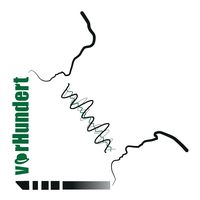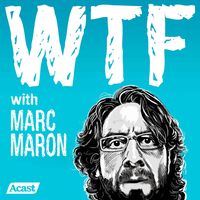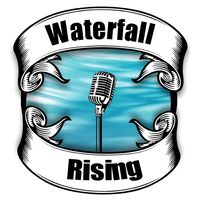The Cold War, Prohibition, the Gold Rush, the Space Race. Every part of your life - the words you speak, the ideas you share - can be traced to our history, but how well do you really know the stories that made America? We'll take you to the events, the times and the people that shaped our nation. And we'll show you how our history affected them, their families and affects you today. Hosted by Lindsay Graham (not the Senator). From Wondery, the network behind American Scandal, Tides of History, American Innovations and more.You can binge new seasons of American History Tellers early and ad-free on Wondery+. Join Wondery+ in the Wondery app or on Apple Podcasts.
https://wondery.com/shows/american-history-tellers/?utm_source=rss
Gesamtlänge aller Episoden: 9 days 10 hours 17 minutes
recommended podcasts
- all
- season 1
- season 2
- season 3
- season 4
- season 5
- season 6
- season 7
- season 8
- season 9
- season 10
- season 11
- season 12
- season 13
- season 14
- season 15
- season 16
- season 17
- season 18
- season 19
- season 20
- season 21
- season 22
- season 23
- season 24
- season 25
- season 26
- season 27
- season 28
- season 29
- season 30
- season 31
- season 32
- season 33
- season 34
- season 35
- season 36
- season 37
- season 38
- season 39
- season 40
- season 41
- season 42
- season 43
- season 44
- season 45
- season 46
- season 48
- season 49
- season 50
- season 51
- season 52
- season 53
- season 54
- season 55
- season 56
- season 57
- season 58
- season 59
- season 60
- season 61
- season 62
- season 63
- season 64
- season 65
- season 66
- season 67
episode 4: Rebellion in the Early Republic - Crisis in the West
In 1794, anti-government protests grew into an all-out rebellion, and President Washington faced his first major test of federal authority. Some 7,000 armed Westerners marched on Pittsburgh and threatened its residents. Violent resistance to the whiskey tax soon spread from western Pennsylvania to Kentucky, Maryland, Virginia, North Carolina, and Georgia. Washington and his cabinet held tense meetings to debate a response to the so-called Whiskey Rebellion...
episode 3: Rebellion in the Early Republic - The Whiskey Rebellion
Only a few years after Shays’ Rebellion was suppressed, a new revolt broke out in western Pennsylvania. Anti-government resentment had been growing on the frontier for years. Then in 1791, the U.S. government handed down a tax on domestic spirits. It became known as the Whiskey Tax. Many western farmers and distillers, already struggling under harsh conditions, refused to pay the tax and rose up in defiance. Armed gangs ambushed tax collectors—and anyone who supported them...
episode 2: Rebellion in the Early Republic - A Constitution Shaped by Revolt
Tensions reached a climax in the freezing winter of 1787, as Daniel Shays and 1,500 rebel soldiers stormed the federal arsenal in Springfield, Massachusetts. The rebels hoped to seize arms and ammunition and burn Boston to the ground. What they didn’t know was that a government army awaited them, setting off a dogged chase in the winter snow that lasted weeks. The farmers’ revolt reverberated far beyond Massachusetts...
episode 1: Rebellion in the Early Republic - Farmer Uprising
The dust had barely settled on the American Revolution when new unrest erupted in western Massachusetts. Thousands of farmers and laborers rose up in protest against unjust taxes and a state government that seemed as oppressive as the British Crown. When their demands for reform fell on deaf ears, the protesters grew more desperate. They took up muskets, swords, and clubs and formed blockades to shut down local courthouses. The growing revolt became known as Shays’s Rebellion...
episode 1: Encore: What We Learned from Fighting the Spanish Flu
In light of growing concerns about the coronavirus, we’re revisiting an episode we ran last spring. One hundred years ago, the Spanish flu pandemic forever reshaped the way the United States responds to public health crises. At a time when people around the world were already dying on an unprecedented scale due to World War I, Spanish flu devastated American cities, killing more than 675,000 people in the U.S. alone...
episode 7: Tulsa Race Massacre Update: Excavating Mass Graves
New archaeological evidence suggests mass graves holding the remains of victims of the Tulsa Race Massacre may exist on two sites in Tulsa. And now scientists plan to excavate portions of those sites to try and uncover the truth. Residents for years had asked the city to take similar steps but until now it hasn’t happened. On this episode we get an update on these developments from Hannibal B. Johnson, an attorney and historian who has written several books on the Massacre...
episode 6: California Water Wars - Los Angeles and the Future of Water
UCLA environmental historian Jon Christensen discusses Los Angeles, its never-quenched thirst for water, and what that means for the future. Support us by supporting our sponsors! See Privacy Policy at https://art19.com/privacy and California Privacy Notice at https://art19.com/privacy#do-not-sell-my-info.
episode 5: California Water Wars - Collapse
With the failure of the Watterson brothers’ banks, the Owens Valley community was forced to abandon its fight for water rights against the city of Los Angeles. William Mulholland, the Los Angeles water department superintendent, could finally breathe a little easier. The city now had full control over its water supply for the foreseeable future. But he would discover that some things can’t be foreseen. Construction had finished in 1926 on the last of the nineteen dams that lined the aqueduct...
episode 4: California Water Wars - We Who Are About to Die Salute You
After years of letting their water be used by the city of Los Angeles, the farmers and ranchers of the Owens River Valley decided to fight back. What would come to be known as California’s Civil War would mark the 1920s with a series of attacks and reprisals between the valley and the city two hundred miles south. With Los Angeles sending agents north to buy more land and secure yet more water rights, valley residents decided to take matters into their own hands...
episode 3: California Water Wars - “There It Is—Take It”
By 1912, the Los Angeles aqueduct project was nearing completion. But as it approached the finish line, fears were growing among the public of a vast conspiracy, fanned by socialist Job Harriman. With the formation of the Aqueduct Investigation Board, engineer William Mulholland found his methods and his purpose suddenly under a microscope. Land deals from nearly a decade ago would threaten to derail the entire project, just a year shy of its completion...








































